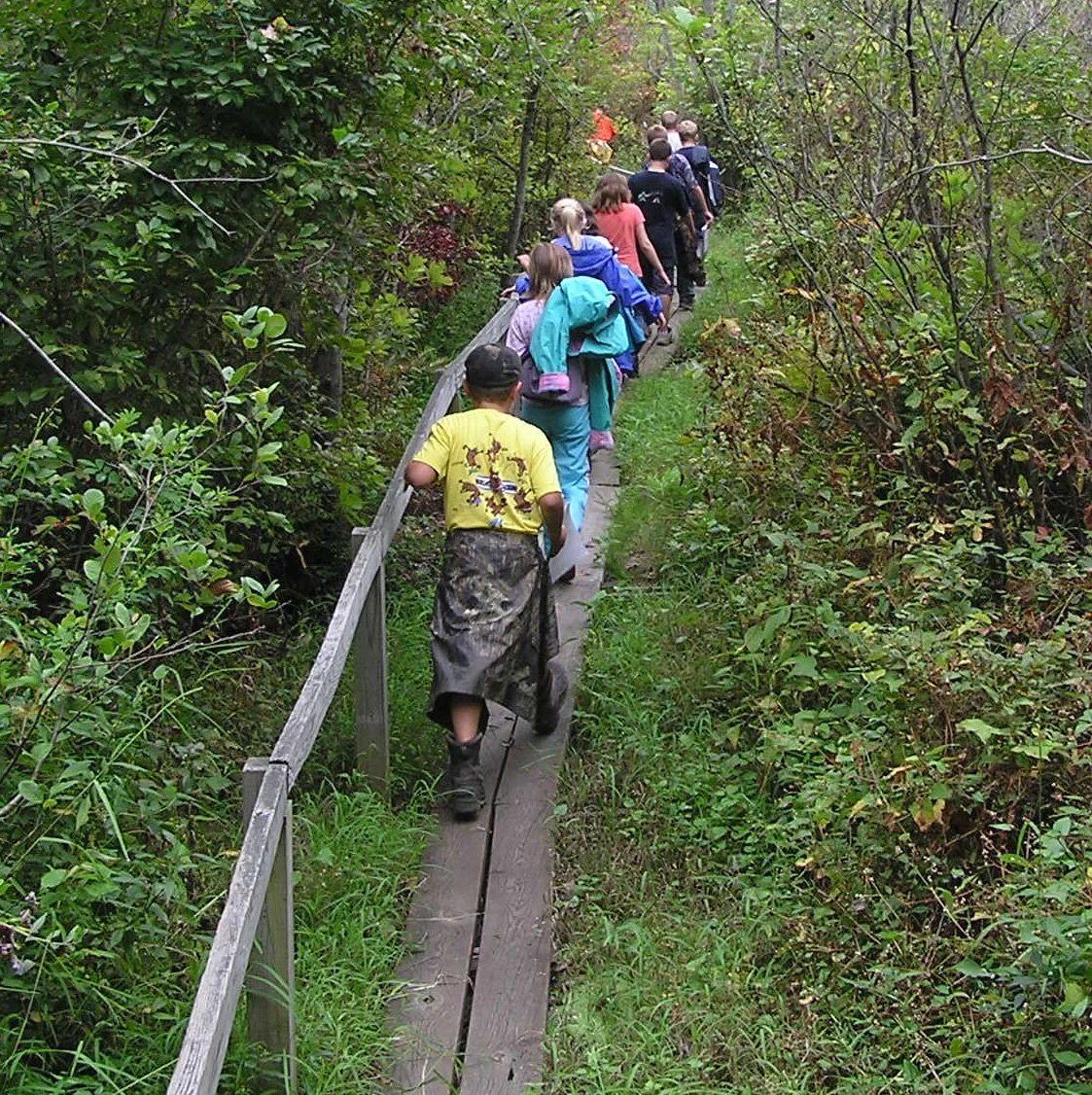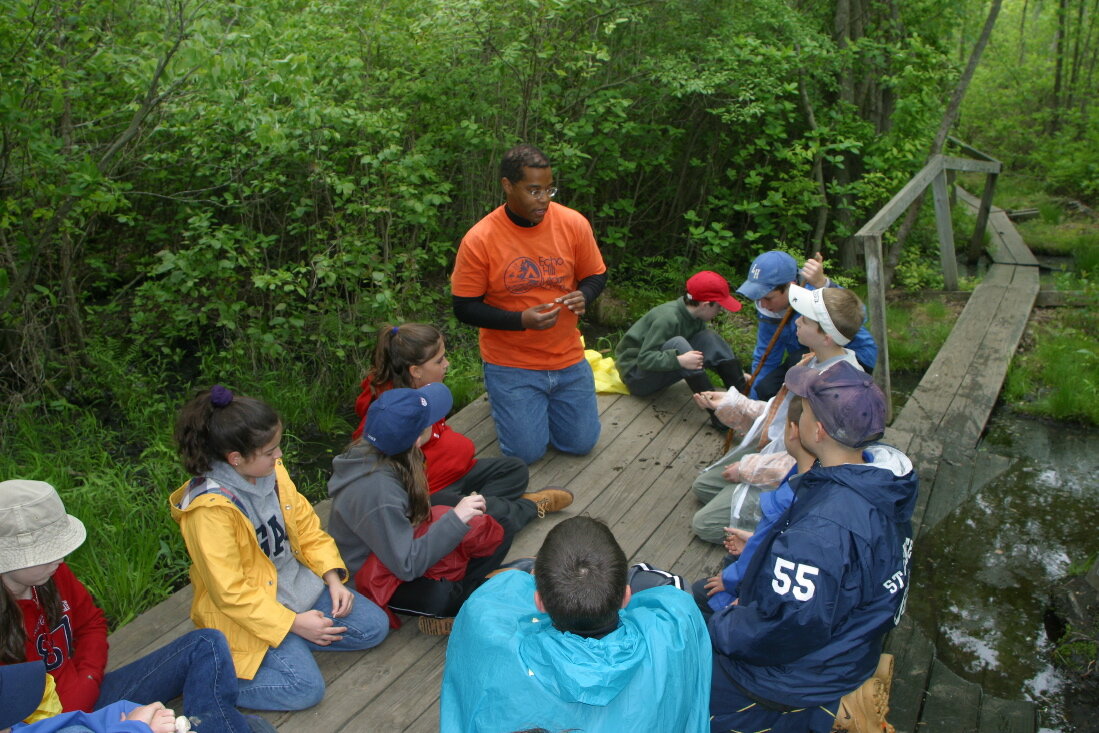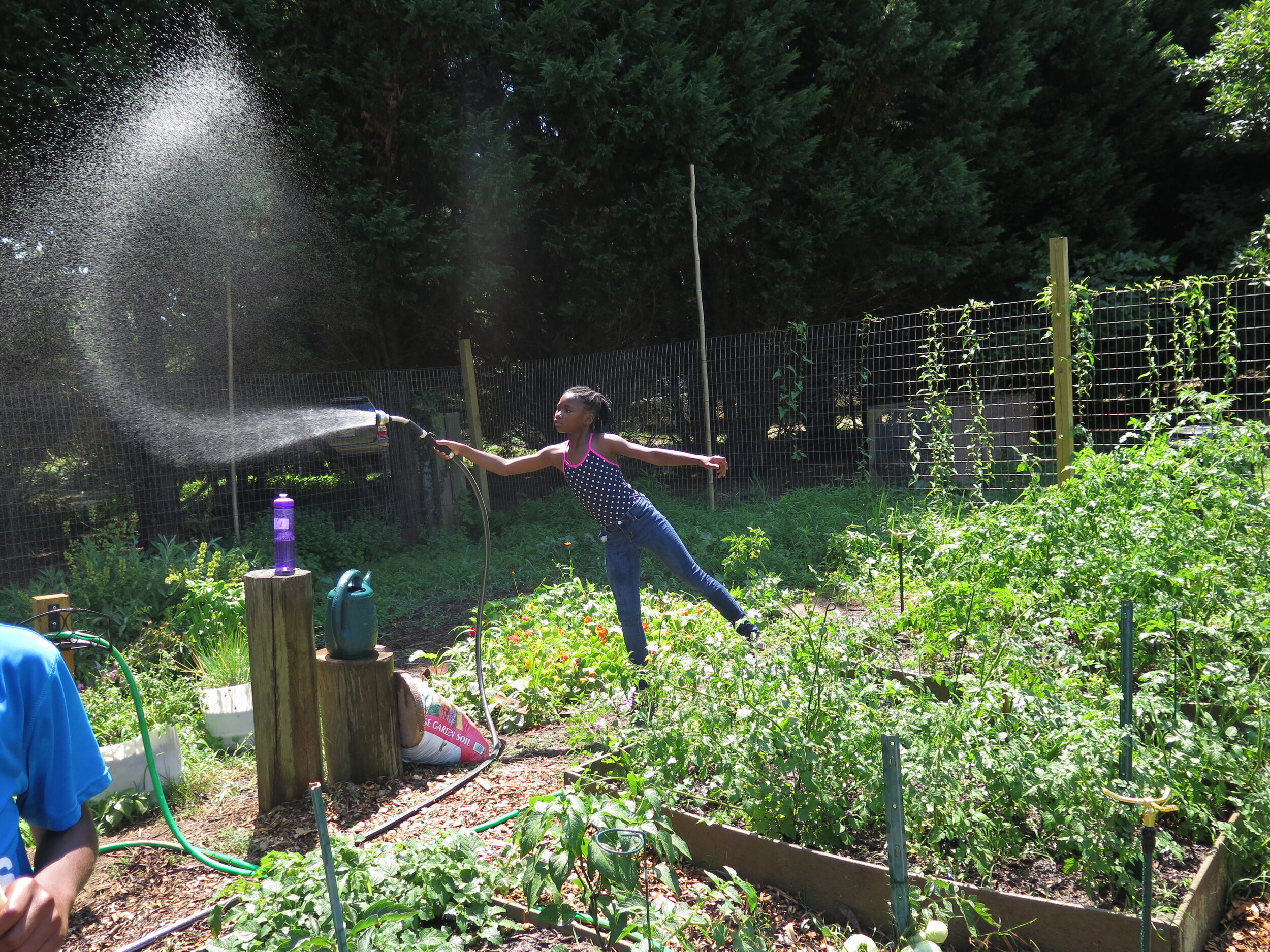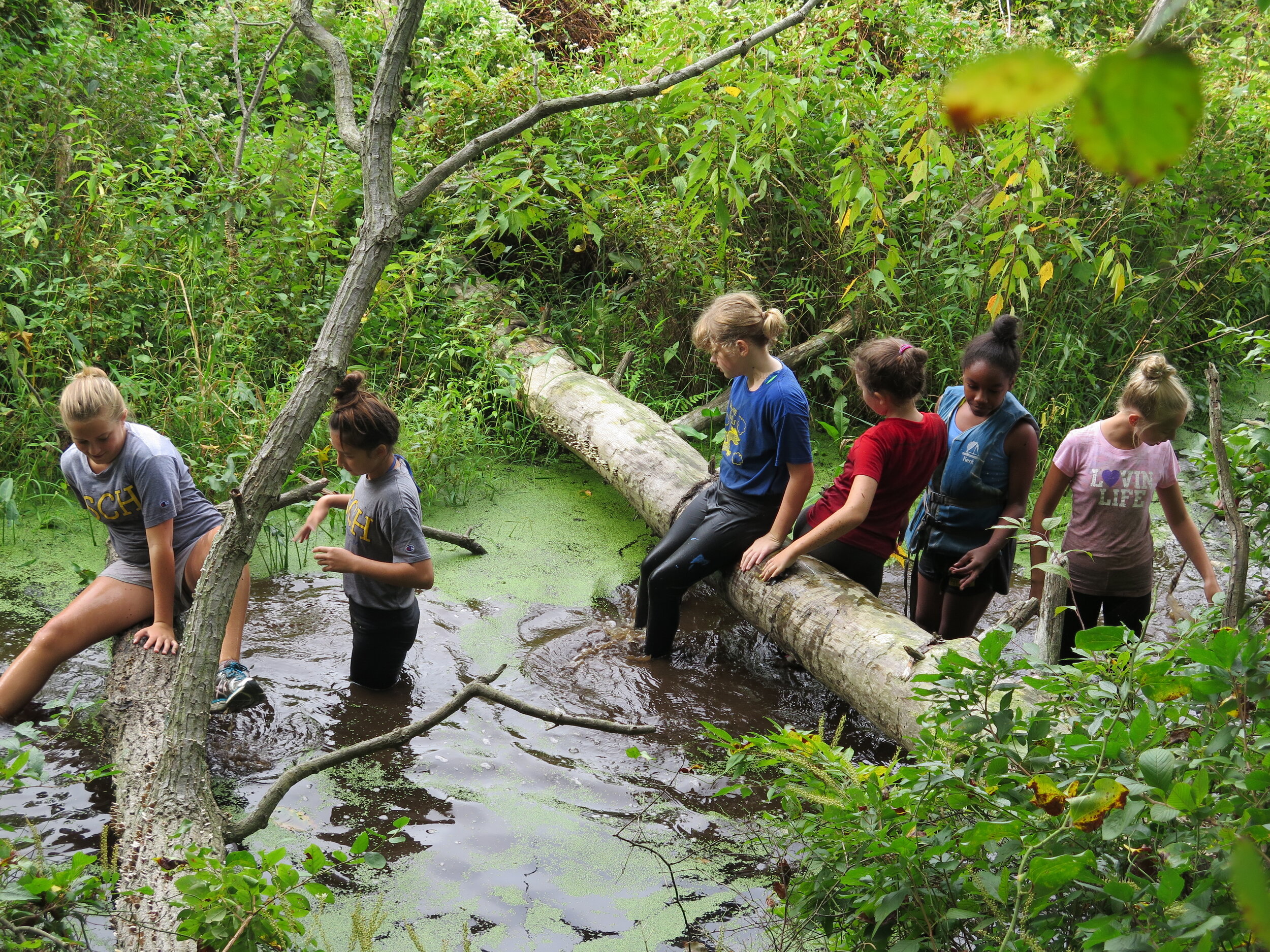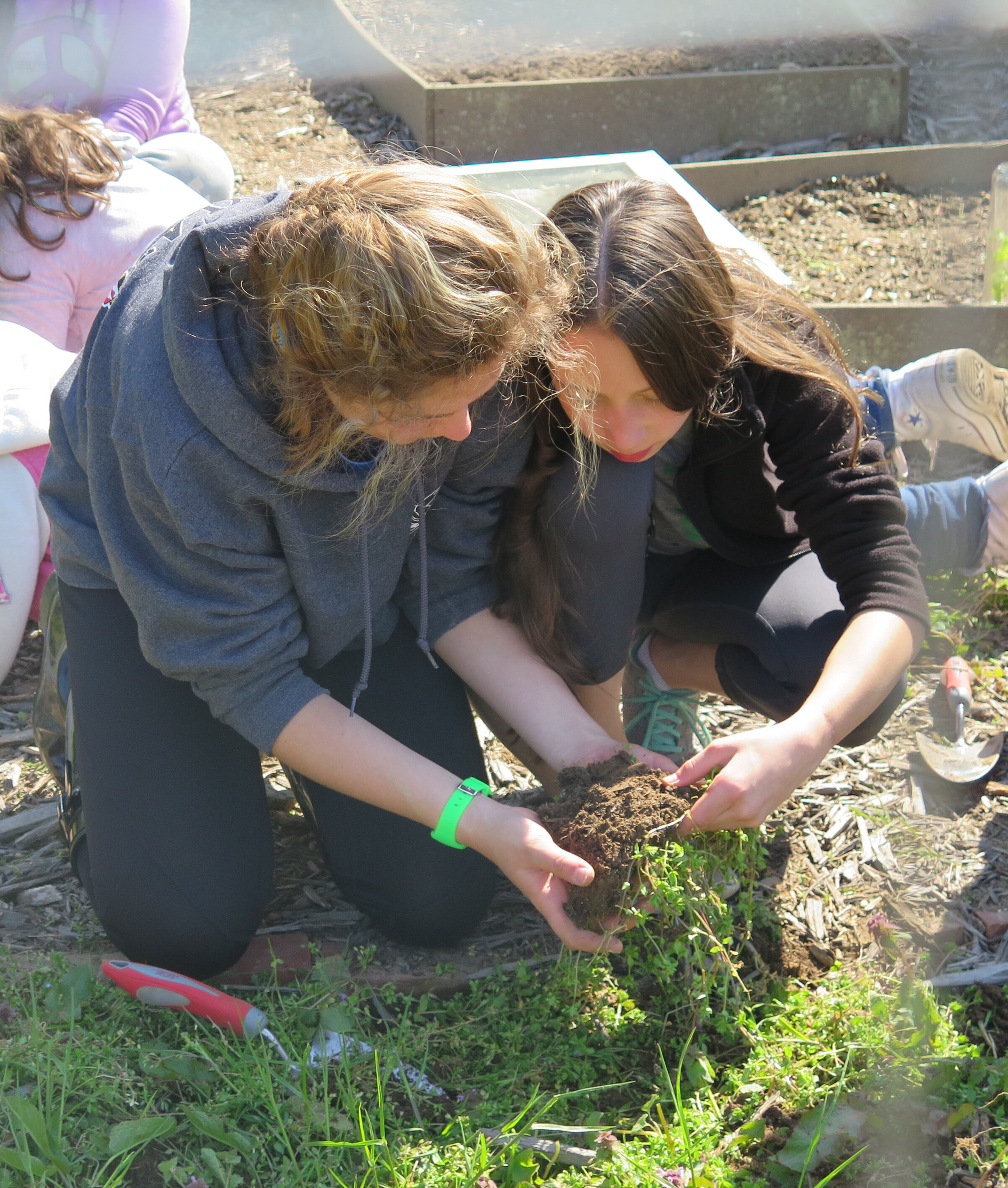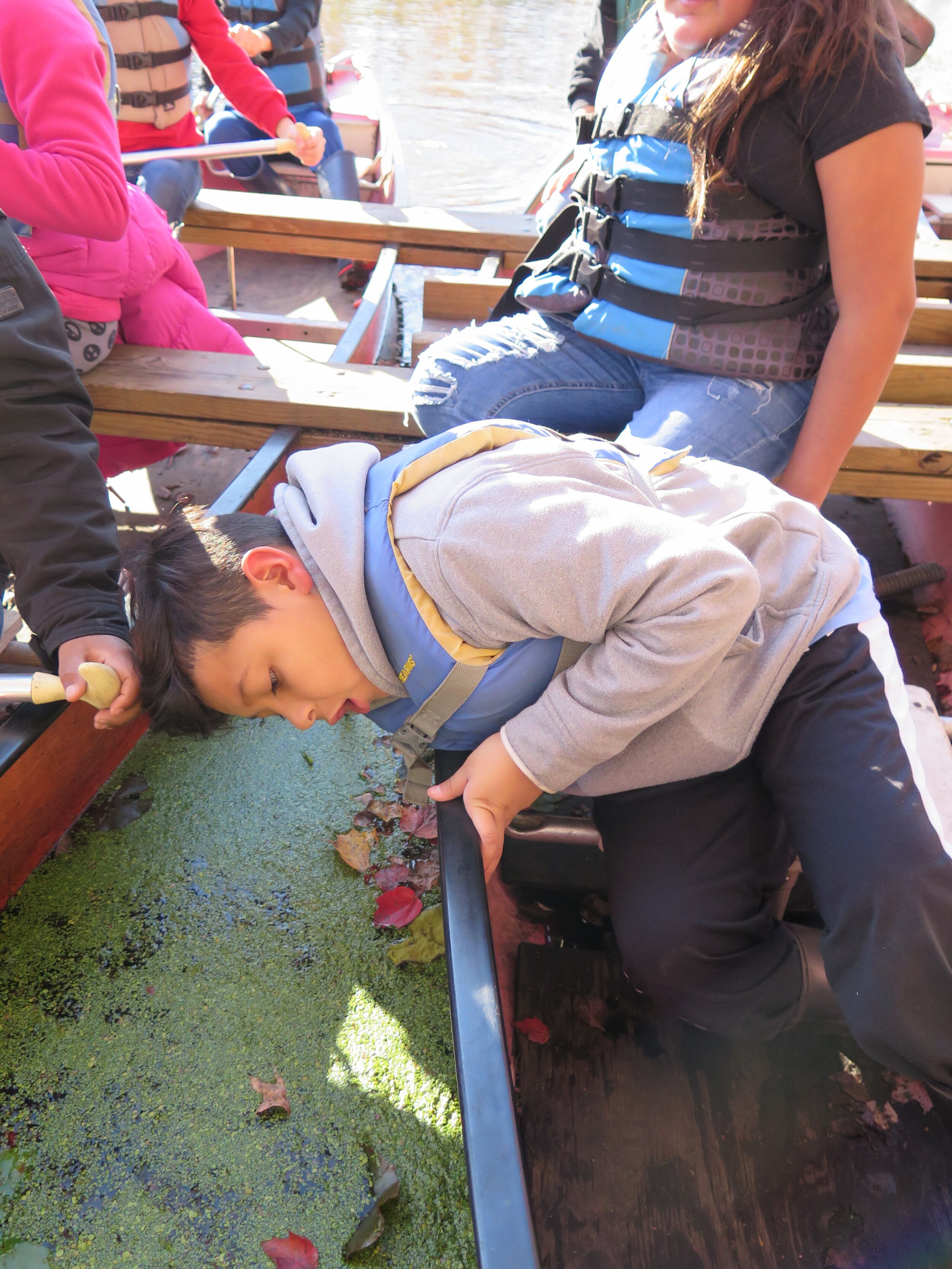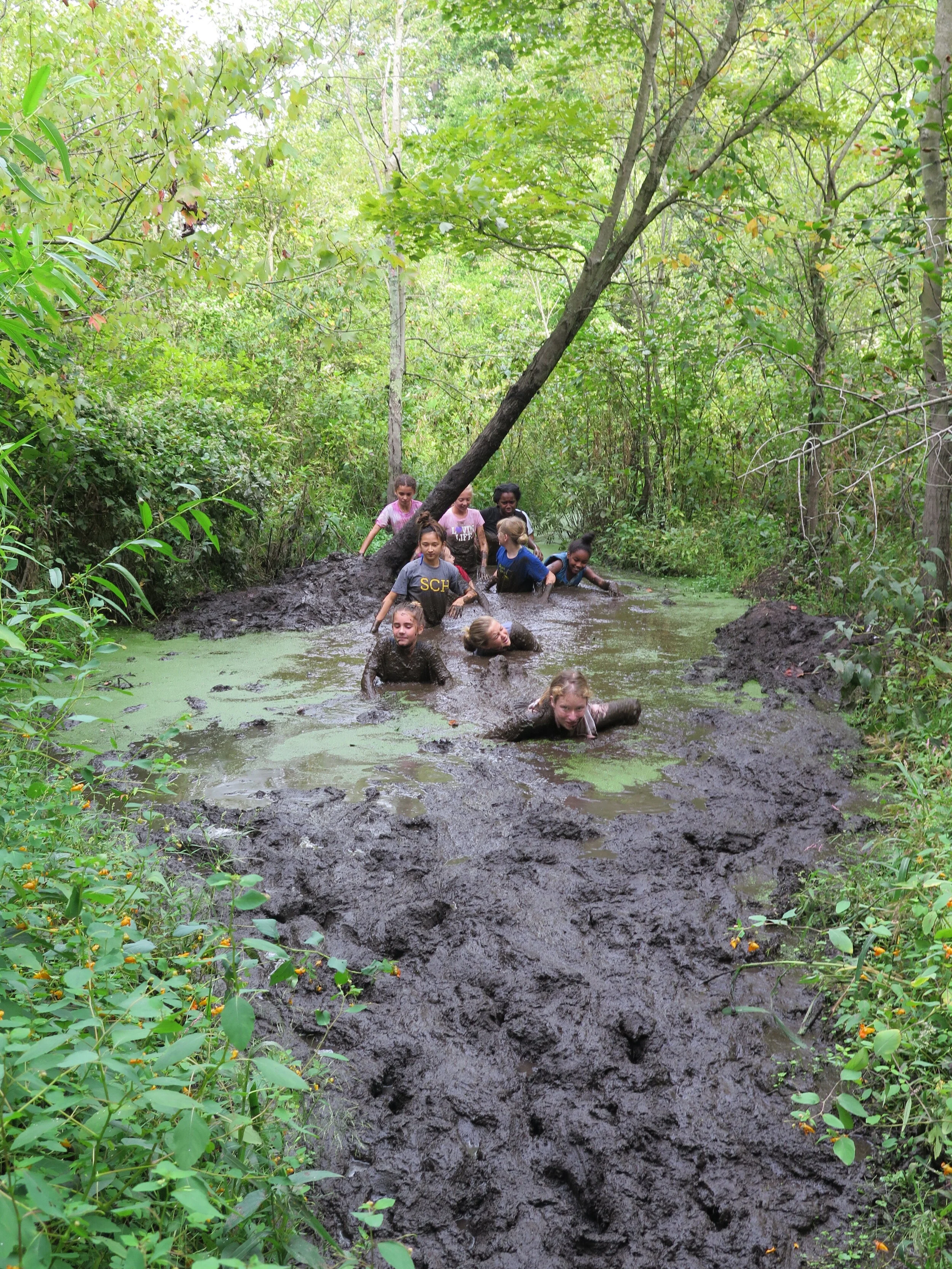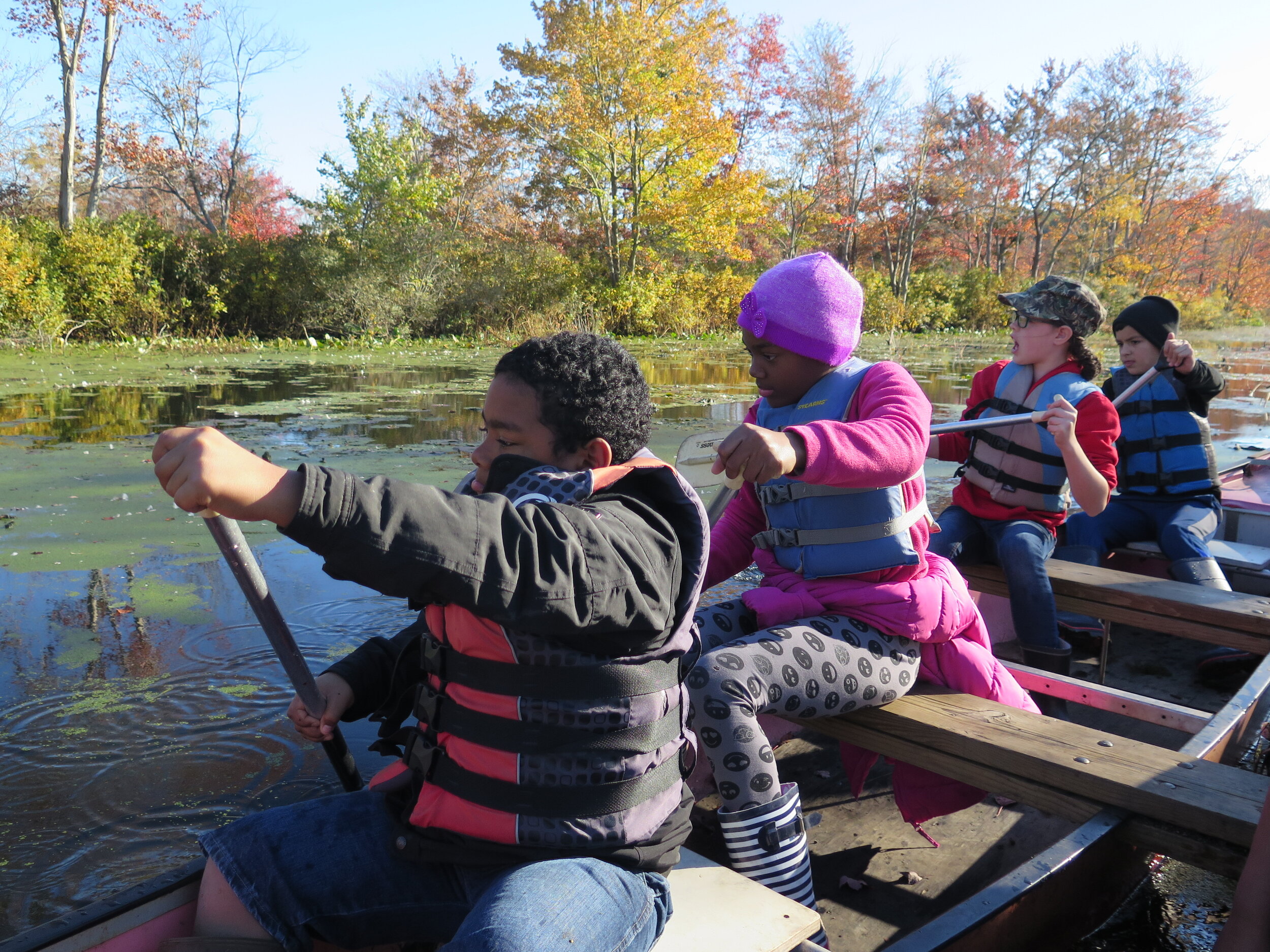Science & Ecology
Creating awareness about the natural environment was the School's original mission and remains the focus of many of its classes. Classes such as Sensory Exploration of the Environment, Swamp Canoe, and Survival take place in the field, forest, bay, beach, or swamp, and they provide opportunities for students to know the world of nature and science first hand. On Bay Studies, students can catch living organisms and piece together different parts of the food chain.
Activities
Activities on Science and Ecology classes involve students in the following types of exploration: examining water quality; sifting through bottom samples; using sense of touch on a nature walk through the forest; studying fish, insects, crustaceans, and other animals; making dyes from natural materials; planting in the garden; feeding barnyard animals; tending to a compost pile; participating in scavenger hunts on the beach; canoeing through the swamp; using a map and compass; and learning about night vision and the night sky.
Science & Ecology Classes
Science and Ecology classes focus on specific information about particular ecosystems, such as the effect of wetlands on the Bay's water quality. The classes also address broader environmental concepts such as natural succession, nutrient cycling, and adaptation. These classes promote students' environmental awareness, their understanding of scientific and ecological principles, and their insight into how humans interact with the environment. Hands-on experiences involve students, fuel their curiosity, and give them a concrete introduction to often abstract scientific ideas and procedures.
BAY STUDIES
Aboard our historic Chesapeake Bay work boats, students learn to understand and appreciate the ecology of the Chesapeake by testing water quality, trawling for fish and crabs, collecting plankton, and sifting through a bottom sample. They also discuss how people in the Chesapeake watershed affect the health of the estuary..
FARM ECOLOGY/S.F.I
Farm Ecology and S.F.I. (Search, Find, and Investigate) classes compare the ecology of natural ecological systems to the cultured ecology of farming. Students investigate animal and plant diversity, identify soil types, and explore watershed concepts in a variety of ecosystems on campus. The class then travels out into the farm community and examines the relationships between agriculture and the environment. Opportunities for understanding the environmental and economic challenges of modern agriculture and their impact on the Chesapeake Bay watershed are limitless.
GARBOLOGY
Garbage and artifacts are collected, examined, and classified according to age, origin and material. Students use clues and imagination to trace an object’s history from natural resource through mining, refining, production, distribution, use and disposal. Echo Hill’s recycling center demonstrates waste management and the simplicity of recycling.
OPINIONS
Dr. Seuss’ story, The Lorax, is presented as a play and followed by a group discussion. In a simulated town meeting or press conference, students take on adult roles and hold a debate concerning the controversy that can arise between people who provide goods and services and people who care about the environment.
ORIENTEERING
Compasses, maps, star charts, sundials and measurements are used to understand different methods of navigation. The class participates in hikes, compass courses and treasure hunts to practice their directional skills.
AQUATIC STUDIES
The class explores ponds and streams to learn about watersheds, food webs, adaptation, eutrophication and succession. Using nets and other equipment, students catch a wide variety of organisms to hold, observe, and release.
NIGHT HIKE
This class helps alleviate children’s fear of the night and provides an introduction to the night environment. Using night vision and other heightened senses; students play games, detect nocturnal animals, observe stars, walk on the beach and listen to the swamp.
SEE (SENSORY EXPLORATION OF THE ENVIRONMENT)
This class encourages exploration on the most basic level, with ears, hands, nose, and eyes to observe details in nature. Students explore a variety of Echo Hill’s ecosystems including forest, meadow, beach and swamp
SEEDS AND WEEDS
Through various games and activities at Echo Hill’s garden and barnyard, children gain an understanding of where plants come from, what they need to grow and reproduce, how the nutrient and water cycles operate, and how much energy is required to supply our food.
SURVIVAL
Students discover how factors affecting their survival compare and contrast with that of other animals. Predator/prey relationships, adaptation, evolution, extinction, and other facets of animal behavior may be explored. Fire building, shelter construction and survival games help children differentiate between needs and desires. Students learn how different our lives are from those of past generations and third world populations, and how dependent we have become on modern technology.
SWAMP STUDIES
This class explores a swamp that was once commercially dredged for peat moss. It is a dramatic opportunity to study human impact on nature by observing the different plants and animals living in the natural and altered parts of the swamp. Observing the enormous variety of plants and animals, students gain an appreciation for wetland environments. Concepts discussed during class include erosion, succession, nutrient cycle, food webs and filtration. This class is conducted on our boardwalk extending 2,000 feet into the swamp. Further exploration of the swamp is sometimes conducted on a raft of canoes.
SWAMP WALK
Students learn about swamp ecology by experiencing it. Wading neck deep in areas of dense growth, preconceptions are challenged as they smell and feel the mud and see wetland plants and animals at eye level. Swamp Walks conclude with a rinse off in the bay and showers, followed by a discussion about impressions and insights. This class is weather and temperature dependent.



